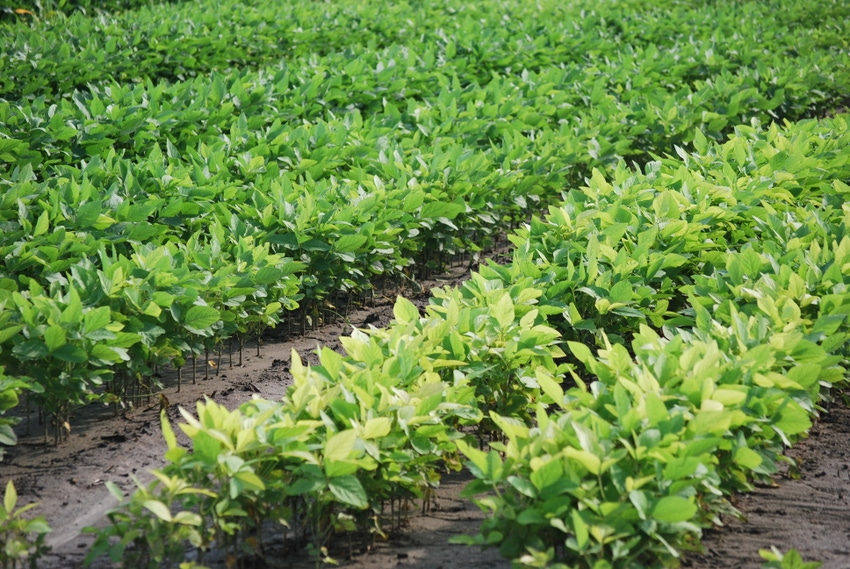
The second Arkansas Soybean College is set for Aug. 8 at the Newport Research Station, just off Highway 67, starting at 8 a.m.
“It’ll be the second time we’ve done this, with the first in 2016,” says Jeremy Ross, Arkansas Extension soybean specialist. “The thought about doing the first college was how it would be best to get out the latest university research results in a hands-on way.
“We thought it would be a good thing to do in-field training for a lot of our farmers, consultants and anyone who’s interested — let them see things in the field, look at the plot work, touch things, learn some scouting techniques that we talk a lot about during winter production meetings.”
The production meetings are great, says Ross. “But some people — including me — learn a lot more by getting out in the field and doing and seeing things.
“So, we started thinking about the first college in 2015 and developed the 2016 program later. The weather that first year was pretty wet in August, but we worked around that and still had a good turnout, close to 130 participated. That college generated a lot of good, positive comments.”
After that, “we got together with Jarrod Hardke (Arkansas Extension rice specialist). He’s been doing in-service rice training for consultants for a couple of years. Now, we’re on a rotation with him — odd-numbered years he’ll do a rice college and even-numbered years we’ll do a soybean college.”
Limited to 130 participants
The Soybean College will be limited to 130 participants (register online http://bit.ly/18SoyCollege) because organizers want fairly small groups at each of the stops.
“That’ll make it easier to get off the trailers and get out into the plots, use sweeps, look at diseases on plants, identify growth stages, look at herbicide symptomology plots,” says Ross. “The hope is the consultants and farmers will leave with a bit more experience and really know what they need to do to scout their fields and what they’re finding.”
One of the interesting things about these colleges and planning is waiting to see how the growing season unfolds.
“What diseases and pests will show up? One of the big emphases last year was the red-banded stinkbug. But with the winter we had, will they be as prevalent this year? They are starting to see a few in Mississippi and southern Arkansas. But if those numbers blow up, we’ll have entomologists show specimens and how to scout for them.
“Diseases are also in the same boat. What will be around the crop during the college timeframe? Target spot has been an issue for the last couple of years and frogeye is always in the crop. Nematodes are also becoming a bigger problem.”
For consultants, there will be CEU credits available. There is a $100 registration fee, but participants will get a sweep net and several other tools to use during the season. Lunch will be provided.
The college will be an all-day affair. Right now, there are six individual stops planned and each will each last about an hour:
Plant pathology.
Irrigation technology. “This should be a really interesting stop with some of the moisture sensors that trigger irrigation.”
Herbicide symptomology and control.
Insect scouting and identification.
Fertility issues will be led by Nathan Slaton and Trent Roberts.
Soybean breeding, growth and development.
“We learned a lot in 2016 and will use that to improve the college coming up.”
About the Author(s)
You May Also Like




